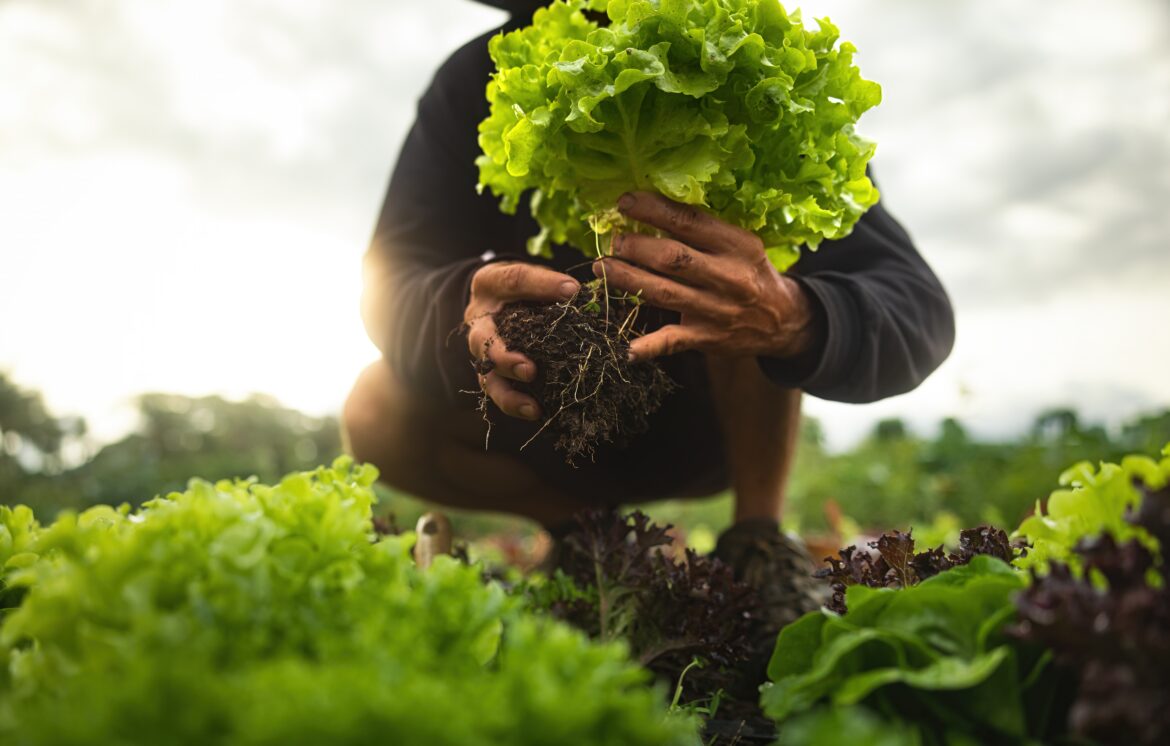The organic movement has grown significantly since the creation of the National Organic Program (NOP) in 1990, and has become the fastest growing sector of the U.S. food market, accounting for over “6 percent of total food sales and 15 percent of produce sales.” Thus, the discussion about organic certification has changed significantly over the past two decades. We talked about the history of the NOP and USDA expectations for organic certification in our 2018 article, Is the Organic Label as Valuable as You Thought? Since then, however, there have been some major shifts in NOP certification standards as well as shifts in producer-perception of organic certification. Lack of trust in NOP standards and the high costs of certification have made some folks hesitant to apply for USDA certification. Here we’ll explore the current relationships among producers, the USDA’s organic certification standards, and the ever-evolving organic movement.
Just How Valuable is the USDA’s Organic Label?
The integrity of the NOP’s organic certification has been called into question over the last few years, especially by small-scale producers. As the market for organic goods has increased, large farms and corporations have the capital to buy up and transform farmland for organic certification, which hasn’t helped small farmers feel confident about their ability to compete in such a well-financed and saturated market. While this trend has helped close the price gap between organic and non-organic products for consumers, some farmers have become hesitant about obtaining organic certification from the USDA. Claims that farms are mislabeling their products as organic have decreased the value and validity of NOP certification for some. Additionally, converting a conventional farm into an organic one that meets USDA standards is incredibly expensive, both for the farmers themselves and, inevitably, for their consumers. These barriers have created a situation in which small and mid-scale farmers have lost confidence in USDA standards and their ability to obtain certification.
New Players and Rising Alternatives
In response to growing producer concerns, many farmer-led projects have arisen to redefine what they think the label organic should look like. The Real Organic Project, for example, aims to reclaim the “organic” label from USDA definitions. The Project’s standards for use of the term are in direct contrast to the “lack of enforcement of some vital USDA Organic standards to protect soil health and animal welfare”. With their commitment to education and higher organic standards, the Real Organic Project seeks to change how both consumers and producers view what it means for food to be organic. Thus, this collection of farmers from across the country has created their own label, “Real Organic,” to represent their version of organic, increase market transparency, and uplift the voices of small-scale farmers. As this label is an add-on, farms must also be USDA certified in order to carry any label of “organic,” including the Real Organic label. Their certification, which is free, requires farms to grow crops in soil, rather than hydroponically, and livestock are to be raised on pasture rather than in confinement. This additional label is an effort to provide consumers with more transparency and trust about farmer practices, though the label itself cannot be a replacement for USDA certification.
USDA Response: Rule Changes and Enforcement
In their effort to reinstate the validity of the USDA seal and regain consumer and producer trust, the NOP has implemented stricter regulations, including the Strengthening Organic Enforcement rule and the updated Organic Livestock and Poultry Standards. These are the most extensive updates to the program since the 1990 Organic Foods Production Act.
So, what are these rules, and how do they help regulate organic products? Claims of improperly labeled imported products and of corporate farms skirting USDA regulations have called into question NOP oversight of products. The Strengthening Organic Enforcement rule is an effort to address fraud in organic supply chains. It seeks to “strengthen organic control systems, improve farm to market traceability, and provide robust enforcement of USDA organic regulations.” In practice, this looks like unannounced on-site inspections of certified operations as well as more robust record-keeping and product traceability. Similarly, updates were made to the Organic Livestock and Poultry Standards to ensure welfare standards for animals raised on organic farms, including stricter requirements for outdoor access and housing. Since its implementation in March 2024, the impact of the Strengthening Organic Enforcement rule has been felt throughout multiple parts of the agriculture sector. Not only must farms pass all the updated standards and record keeping, but other distribution and processing parts of the food system must abide by the same standards. Anyone handling organic products, including those who sell, process, or package agricultural products, must get certified and uphold USDA standards in order to operate. Companies are still attempting to keep up with the rule a year after its implementation, oftentimes not realizing they are expected to become certified as a result. The far-reaching impact of this rule is the point, to hold every part of the food system accountable in upholding USDA standards in order to make sure the integrity of the organic label remains high.
Producers seem to be in agreement that labels to verify their non-chemical and climate-conscious practices are significant. Disagreements seem to be related to individual farmers’ perceptions of which labels make the most sense for their specific operations. Many find the USDA certification perfectly acceptable and preferable for their farms, while others have a difficult time justifying the cost and paperwork associated with that label. Overall, there is shared recognition of the impact this labeling has on consumers and product marketability, not to mention the very real environmental impact of conventional farming that organic farms help to mitigate. The good news is that regardless of how farms are able to obtain and label their organic practices and certifications, more and more farmers are becoming interested in farming as non-chemically and climate-consciously as possible.
Organic Certification: Where Are We Now?
2K
previous post


